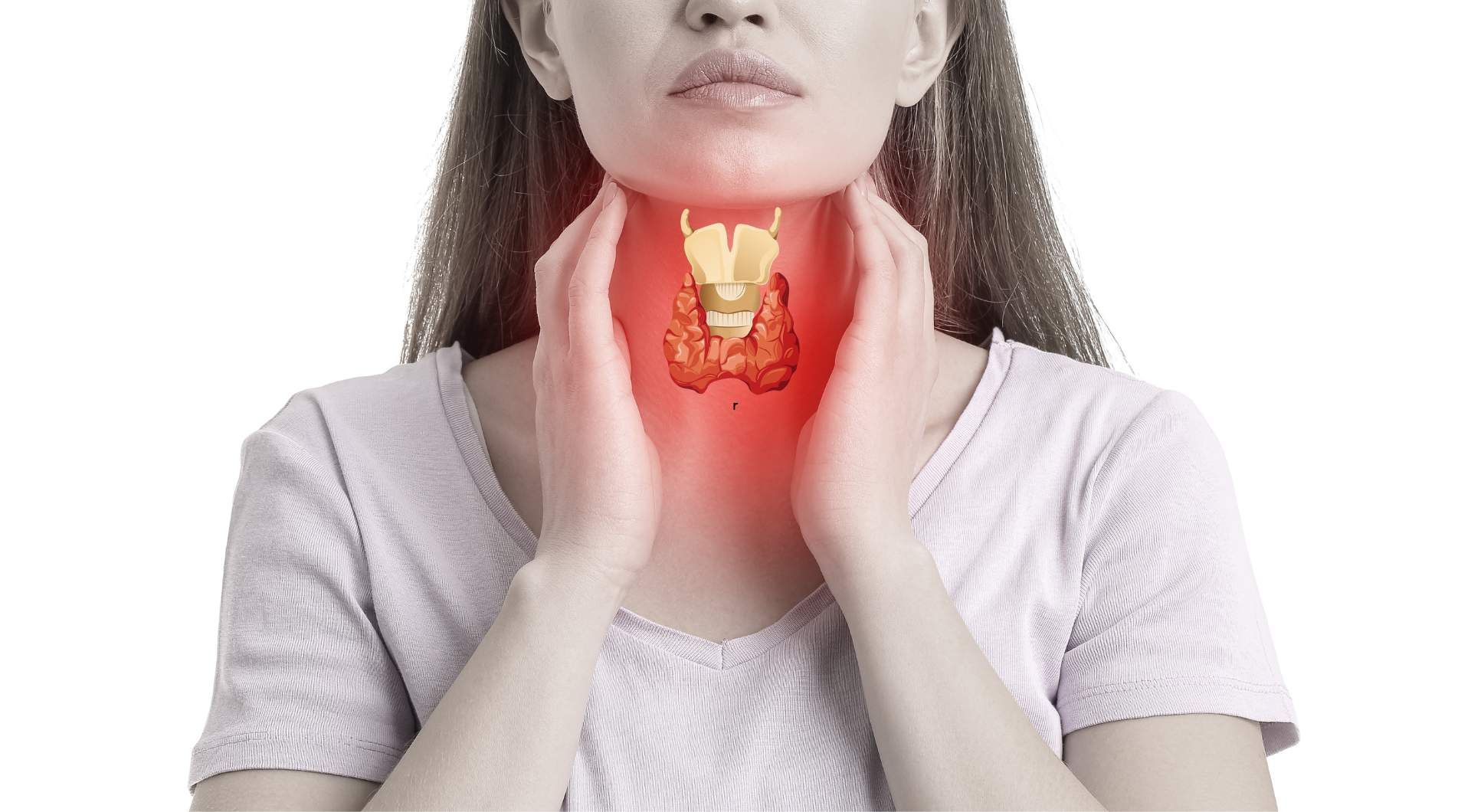The Pros and Cons of Ketogenic Diet Choices: Learn Why “Keto” Is the Latest Diet BuzzWord and if the Keto Lifestyle Is Right for You
"The content below is not intended to be a substitute for professional medical advice, diagnosis, or treatment. Always seek the advice of your physician or other qualified health provider with any questions you may have regarding a medical condition."
Browsing Pinterest? You may have noticed an increase in “keto-friendly” recipes. Scrolling Instagram? The hashtag “#ketolifestyle” may be trending among the people and accounts you follow.
The keto diet is the latest in “buzzy” diets.
If you’re curious about this latest diet trend, read on to learn about:
- Keto pros and cons
- Whether or not the ketogenic lifestyle could be harmful long term
- How a holistic approach to nutrition might be a better option for your body’s needs and your dietary goals
Table of Contents
- What You Need to Know About a Ketogenic Lifestyle
- Pros and Cons of Keto Diet and Lifestyle
- 5 Pros of Keto Diet Foods to Consider
- 9 Keto Diet Cons to Think About
- Is the Keto Diet Harmful Long-Term?
- Is There a Better Diet Than Keto? Learn How Taking a Holistic Approach With Nutrition Response Testing Promotes Lasting Health Benefits
What You Need to Know About a Ketogenic Lifestyle
While it may seem like a fad, the keto diet is nothing new. In fact, the ketogenic diet was popular in the 1920s and 1930s and was developed as a dietary therapy to treat epilepsy.
There are pros and cons of the keto diet , though it’s important to note that keto is more of a lifestyle in that you may see your day-to-day life change quite a bit while practicing keto. It’s not a diet you can easily go on and off, meaning it’s difficult to take a week off when you go on vacation or decide to splurge on pizza and cupcakes one night for a friend’s birthday. Adding carbs suddenly back into your diet could cause GI stress.
There are other diets and lifestyles that are less restrictive but provide similar benefits to the keto diet because they also encourage meals low in carbohydrates and rich in healthy fats.
Some of these diets might include:
- The Mediterranean Diet
- Whole30
- The Dukan Diet
- The South Beach Diet
- And many more….
But with so many diets and nutrition lifestyles out there, how do you know which is the best for you?
After all, everyone’s bodies are different, and everyone has different goals.
Rather than trying each and every trendy diet, you could go straight to the experts and work with a nutritional therapy practitioner .
HealthierU is an excellent resource if you’re looking to lose weight or change up your diet for other reasons. HealthierU’s mission is to help patients overcome their health issues with nutrition and lifestyle guidance rather than medication or surgery.
Dr. Donna Sergi has helped thousands of patients remedy problems with:
- Weight loss
- Digestive health
- Acid reflux
- Anxiety
- And more
Don’t waste time with fad diet after fad diet. Whatever nutrition goals you’re hoping to achieve, HealthierU can help you with the tools to make it happen.
How Does the Keto Diet Work?
The keto diet focuses heavily on tracking macronutrients.
Typically, macronutrient breakdown for the keto diet is as follows:
- Fat: 70-75%
- Protein: 15-20%
- Carbohydrates: 5-10%
Getting most of your calories from fat forces your body to burn body fat for energy as opposed to carbs for energy, entering a state called ketosis.
Pros and Cons of Keto Diet and Lifestyle
When exploring a new diet or lifestyle, it’s essential to examine the pros and cons. This is best done with the assistance of a health professional.
For now, let’s dig into the pros and cons of the keto diet.
5 Pros of Keto Diet Foods to Consider
While there are pros when it comes to committing to keto diet foods, such as successful weight loss, it’s important to note that additional research is needed to support many of the other health “pros.”
#1: Weight Loss
People do lose weight on the keto diet. Some people also report being less hungry than on other diets. This may be due to the high intake of fat. Fatty foods take longer for the body to break down.
Weight loss on the keto diet is a result of a combination of:
- The body being in a state of ketosis
AND
- A reduction in calorie intake due to the elimination of food groups
While you can successfully lose weight on the keto diet, a more balanced approach to nutrition might prove more ideal for long-term results.
#2: Lower Blood Sugar
People with type 2 diabetes may find the keto diet helps manage (and potentially decrease) glucose levels.
It’s important to note that research on the keto diet’s effectiveness in treating diabetes is limited.
#3: May Decrease Inflammation
There have been studies linking ketogenic diets and decreased inflammation and pain. Scientists say more research in this area is necessary.
#4: Reducing Epileptic Seizures
Research has found following the keto diet can help reduce seizures, specifically in children with epilepsy. Still, even though it can be effective, this method of treatment is often abandoned by epilepsy patients because the lifestyle is so difficult to maintain.
#5: Could Help Prevent and Treat Cancer
Some studies suggest the keto diet may help treat certain types of cancer. A working theory is that the high-fat diet starves tumors, which typically feed on sugar.
Still, no major cancer research groups actively recommend the keto diet for cancer treatment or prevention.
9 Keto Diet Cons to Think About
When it comes to keto, there are several cons to consider.
#1: High Cholesterol
The first downside of keto diet – high cholesterol.
Because you’re getting more than half of your daily macronutrients from fat on the keto diet, some studies suggest this raises levels of LDL (low-density lipoprotein) or “bad” cholesterol.
For this reason, it’s important that people following the keto diet closely monitor their cholesterol levels. If they rise, it may be an indication this diet isn’t for you.
#2: Greater Risk of Heart Disease
High cholesterol and heart disease go hand-in-hand.
Indeed, due to the increased consumption of fats, namely saturated fats, people on a keto diet need to be concerned about their risk for cardiovascular disease.
#3: The ‘Keto-Flu’
People new to the keto diet may experience the “keto flu” as they begin the diet.
What is the “keto flu?”
It’s a collection of symptoms many people experience during the first few days of the diet as their body adjusts to consuming fewer carbohydrates.
The drastic reduction in carbs can shock the body, and some people experience withdrawal symptoms, including:
- Nausea
- Vomiting
- Diarrhea
- Headache
- Muscle cramps
- Weakness
- Stomach pain
- Sugar cravings
Symptoms can range from mild to severe, depending on the person. For most people, symptoms subside within a week of beginning the keto diet.
#4: Nutrient Deficiencies
Because the keto diet is so restrictive, you’ll eat fewer fruits, vegetables, legumes, and grains while keeping your carbohydrate count extremely low. This could put you at risk for deficiencies in certain micronutrients, including:
- Calcium
- Magnesium
- Potassium
- Selenium
- Vitamins B
- Vitamins C
- Thiamin
- Folate
- Iron
A balanced diet including proteins, fats, and carbohydrates ensures your body is getting all of the nutrients it needs to function properly.
#5: Not Safe for People With Kidney Disease or Liver Problems
Do you suffer from kidney disease or liver problems?
If so, the keto diet may not be safe for you.
That’s because our kidneys help metabolize protein, and the recommended protein intake on the keto diet may overload them.
Additionally, with so much fat to metabolize while on the keto diet, this could worsen any existing liver conditions.
#6: Constipation
While on the keto diet, you may notice yourself getting “backed up.” By eliminating most carbohydrates from your diet, you’re eliminating the dietary fiber you get from foods like:
- Fruits
- Bread
- Cereal
These fibrous foods are what helps to keep you regular.
#7: Mood Swings and Fuzzy Thinking
Have you heard the term “hangry?” The word was added to the Oxford English Dictionary in 2018 and is defined as “bad-tempered and irritable as a result of hunger.”
Sugar from healthy carbohydrates helps our brain function properly. Therefore, people limiting carbs may notice:
- Mood swings
- General irritability;
- And confusion
#8: Not Easily Sustained
Because it is so restrictive, the keto diet may be difficult to maintain long-term.
While it can be effective to lose weight in the short-term, diets with such stringent rules often lead to yo-yo dieting.
Some people eventually give in to cravings, even binge eating. Others stop keto because it can be socially isolating.
After all, keto doesn’t often mesh well with impromptu lunches or after-work cocktails
#9: Risk of Developing a Food Obsession
Many people find the best way to achieve ketosis is to carefully track their food intake.
Because the keto diet includes so much emphasis on macronutrients and carb-counting, this constant tracking can unintentionally lead to an unhealthy relationship with food.
Meal planning and mindful eating are healthy, however, if you’re obsessively tracking macronutrients and always thinking about your next keto meal, it could be a sign you’ve developed a disorder.
Is the Keto Diet Harmful Long Term?
It certainly could be.
From nutrition deficiencies and studies showing the keto diet may cause heart problems long term, the risks do add up and may outweigh the pros.
If the keto diet is something you’re considering trying, you should first consult a doctor, registered dietitian, or nutritional therapist.
Is There a Better Diet Than Keto? Learn How Taking a Holistic Approach With Nutrition Response Testing Promotes Lasting Health Benefits
After digging into the pros and cons of keto, is keto the right diet for you and the right method to achieve your nutritional goals?
Maybe.
But there’s likely a nutritional plan better suited to your needs, goals, and lifestyle.
How do you find the right plan for you?
Nutrition Response Testing is a great place to start.
HealthierU can help. As specialists in women’s health and wellness, HealthierU can help by offering Nutrition Response Testing and personalized nutrition guidance.
Dr. Donna Sergi believes in a holistic approach to nutrition. With more than 25 years of experience and a lifetime committed to health and wellness, she knows that different bodies have different needs. Additionally, different people have different goals.
There’s no reason to restrict yourself to a diet like the keto diet if that’s not what’s best for you.
Reach your goals in the healthiest possible way with HealthierU.
HealthierU
Natural Nutritionist Brooklyn
126 Avenue U
Brooklyn, NY, 11223
(718) 375-4355
Office Hours
- Monday
- Closed
- Tue, Fri
- -
- Wednesday
- - -
- Thursday
- -
- Sat - Sun
- Closed






